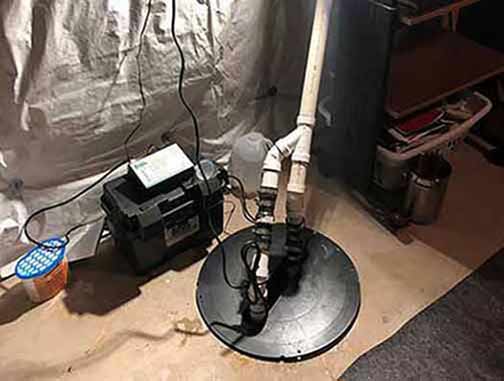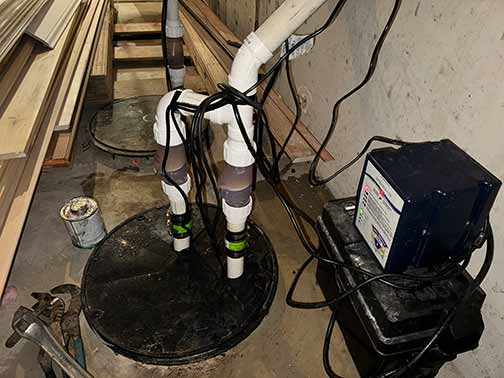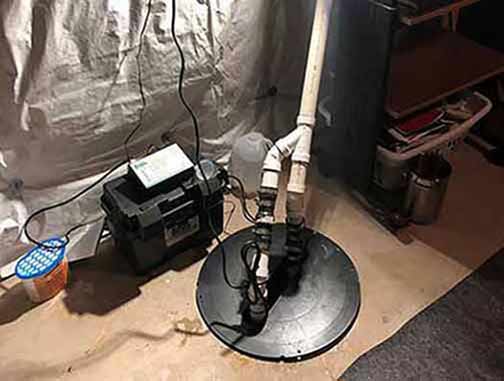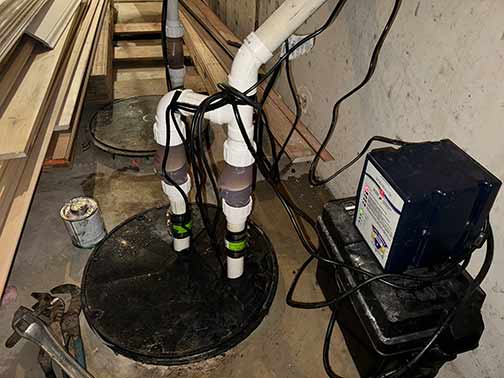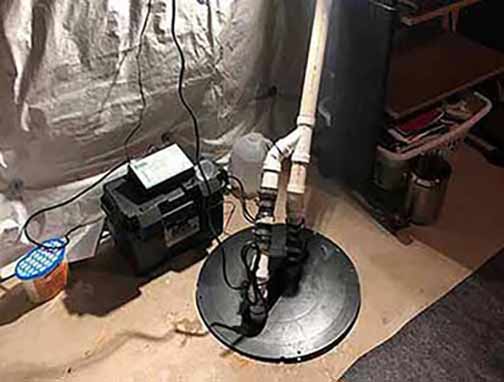
Understanding the Risk: Why Home Flooding Occurs
Home flooding is a significant risk that many homeowners face, often due to a combination of environmental and structural factors. Heavy rainfall, rapid snowmelt, or even plumbing failures can lead to basement flooding, causing extensive damage to property and possessions. Understanding the reasons behind these occurrences is crucial for implementing effective preventative measures. Environmental factors such as climate change have increased the frequency and intensity of storms, resulting in higher chances of flooding. Additionally, urban development can exacerbate flooding risks by altering natural waterways and increasing surface runoff. Structural issues like poor drainage systems, foundation cracks, and outdated plumbing can also contribute to flooding, emphasizing the need for regular home maintenance and inspection.
The Role of Sump Pumps in Flood Prevention
Sump pumps are integral to home flood prevention, especially in areas prone to heavy rain or rapid snowmelt. These devices are designed to remove excess water from basements and crawl spaces, preventing water accumulation that can lead to flooding. By efficiently channeling water away from the foundation, sump pumps help maintain the structural integrity of a home. They act as a first line of defense, ensuring that water levels are kept in check and do not reach critical levels that could cause damage. The effectiveness of sump pumps in flood prevention highlights their importance in a comprehensive home protection strategy.
Battery Backup Sump Pumps: A Reliable Solution
While primary sump pumps are effective, they rely on electricity to function. During severe storms, power outages are common, rendering electric sump pumps useless when they are needed most. Battery backup sump pumps provide a reliable solution by ensuring that water removal continues even when the power is out. These systems automatically activate when the primary pump fails, offering uninterrupted protection against flooding. The reliability of battery backup systems is crucial in safeguarding homes during extreme weather events, providing homeowners with a robust solution that addresses the limitations of conventional sump pumps.
Peace of Mind: The Emotional Assurance of Battery Backup Systems
Investing in a battery backup sump pump is not just about physical protection; it also offers significant emotional reassurance. Knowing that your home is safeguarded against flooding, even in the event of a power outage, provides peace of mind. This assurance allows homeowners to focus on other priorities without the constant worry of water damage. The emotional comfort derived from having a reliable flood prevention system in place is invaluable, as it alleviates stress and anxiety associated with potential flooding threats. Homeowners can rest easy, knowing they have taken proactive steps to protect their property and loved ones.
Installation and Maintenance: Ensuring Optimal Performance
Proper installation and regular maintenance are crucial for the optimal performance of battery backup sump pumps. Homeowners should ensure that their systems are installed by professionals who understand the intricacies of these devices. Routine checks and maintenance, such as testing the battery and cleaning the pump, help ensure that the system will function effectively when needed. Regular maintenance also involves inspecting the discharge line for blockages, ensuring the battery is fully charged, and replacing it when necessary. By adhering to a maintenance schedule, homeowners can maximize the lifespan and efficiency of their sump pump systems, ensuring they are always ready to perform when required.
Choosing the Right Battery Backup Sump Pump for Your Home
Not all battery backup sump pumps are created equal. Homeowners must consider various factors when selecting a system, such as the size of their basement, the frequency of local flooding events, and the pump’s capacity. Additionally, the type of battery used and the system’s compatibility with existing sump pumps are important considerations to ensure seamless integration and reliable performance. Homeowners should also consider the ease of installation, warranty, and customer support offered by manufacturers. By thoroughly researching and comparing different options, homeowners can choose a system that best meets their needs and provides the highest level of protection.
Cost Considerations: Balancing Investment with Protection
While battery backup sump pumps represent an additional investment, the cost is often outweighed by the protection they offer. Homeowners should weigh the initial expense against potential savings from avoided water damage repairs. Furthermore, some insurance companies may offer discounts for homes equipped with flood prevention systems, providing further financial incentives. The long-term benefits of investing in a battery backup sump pump extend beyond immediate cost savings, as they contribute to the overall value and safety of the home. By prioritizing flood prevention, homeowners can protect their investment and avoid costly repairs and disruptions.
Environmental Impact: Sustainable Choices in Home Protection
In addition to their practical benefits, battery backup sump pumps can contribute to a home’s environmental sustainability. By preventing water damage, these systems help reduce the need for extensive repairs and replacements, which can be resource-intensive. Additionally, choosing energy-efficient models can minimize the environmental footprint of home protection measures. Homeowners can further enhance sustainability by selecting pumps made from recyclable materials and opting for systems with low energy consumption. By making environmentally conscious choices, homeowners can protect their homes while also contributing to broader efforts to reduce environmental impact.
Future Innovations: Advancements in Sump Pump Technology
The field of sump pump technology is continually evolving, with new innovations promising even greater reliability and efficiency. Advances in battery technology, smart monitoring systems, and integration with home automation platforms are expanding the capabilities of battery backup sump pumps. These developments offer homeowners enhanced protection and convenience, ensuring peace of mind in the face of potential flooding threats. As technology continues to advance, homeowners can expect to see more sophisticated and user-friendly solutions that further improve the effectiveness of flood prevention measures. By staying informed about the latest innovations, homeowners can make strategic decisions about upgrading their systems to take advantage of cutting-edge technology.
